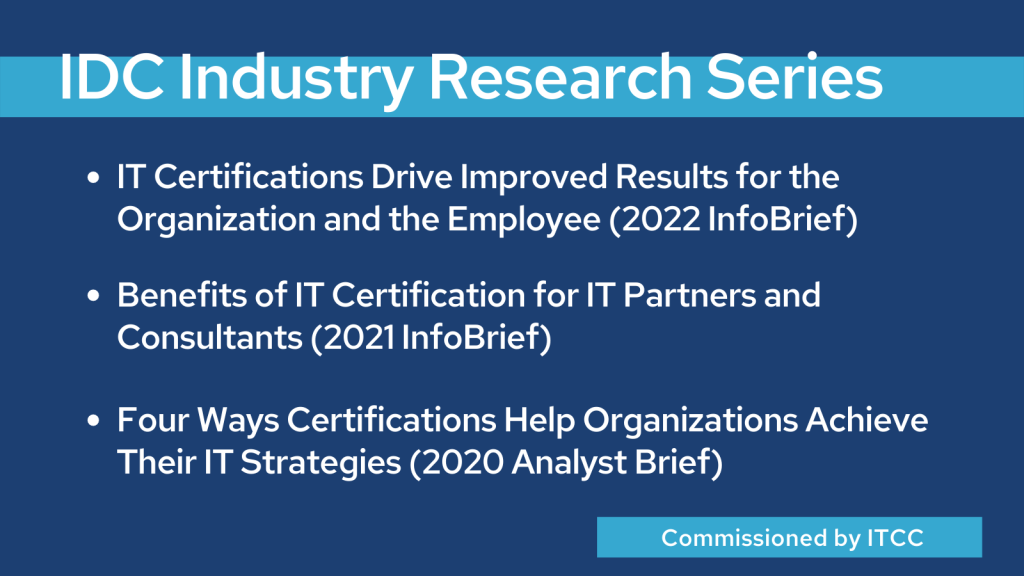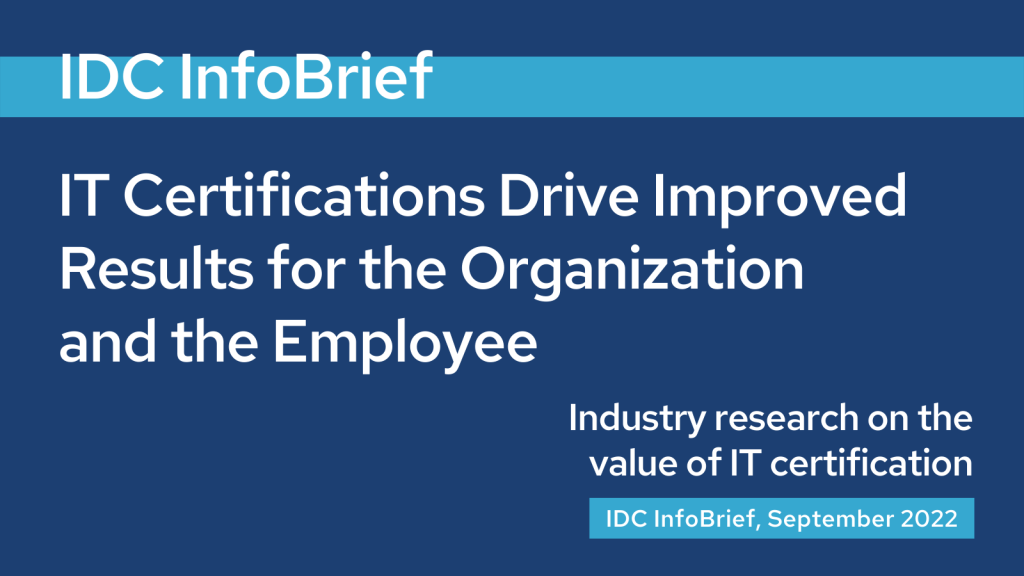Written by Liberty Munson from Microsoft
The ITCC recently released the last white paper in a three-part IDC research series that they commissioned for its membership: IT Certifications Drive Improved Results For the Organization and the Employee (2022). I was lucky enough to be part of the small task force that reviewed and refined the content of this white paper, so I had early insight into the data that was included. I was very excited to see some of the data points that support the value of certification to organizations and employees. In fact, I was able to pull some of the data points to build the case for a new initiative that Microsoft is exploring. While I can’t say much about what we’re doing yet (insert mysterious music here), I will share the data points that I used to build that case:
- Skill gaps delay digital transformation journeys by an average of 35 weeks. (That’s just about as long as it takes to gestate a human baby, and it’s long enough to gestate a baby hippo.)
- When projects are related to a specific domain, professionals certified in that domain are about 35% more influential than IT professionals who are certified in other areas.
- Domain-certified employees have 5.5 times greater influence during initial deployment compared to non-certified.
We know that the IT skills gap is real. This gap is delaying the digital transformation of many organizations costing billions of dollars, and this is not hyperbole. Certification is one tool available that helps organizations recruit, hire, and promote people who have the skills they need to solve core business problems and challenges that are hindering their digital transformation journeys. Further, organizations can use the information obtained through certification to assign people to the right projects at the right time, which will improve efficiency and efficacy of the solutions implemented.
Of course, the other side of this coin is that IT certification programs need to create certifications that evaluate the skills needed to solve the critical problems that organizations are facing. As I look through this research and I think about where we are as an industry, I see possibilities to drive even closer alignment between the skills we are assessing and the specific problems that organizations are facing. So, I ask you: “Are you doing this in your program? Does your program have certifications that clearly align to the skills needed to solve those critical business problems? If not, what can you do differently (even if that means doing something completely different)?”
If we, as an industry, want to stay valued, we need to make sure we are having the right conversations with our customers, partners, and other stakeholders to ensure that our certifications meet those needs—that they are measuring skills that tie to key business objectives. If we do, the research is clear that our certifications can drive tangible business results that affect the organization’s bottom line through expediting their digital transformation journeys.
For what it’s worth, given that the research that the ITCC has commissioned demonstrates the clear value of certification, we should be able to make the connection between our certifications and job opportunities. We need to tell the story in a clear and compelling way. I continue to linger on the second stat above… if we can draw the connection between our certifications and project success, we can tell the story that if someone has certification X, they can solve organizational problem Y. The nuance here is that we are drawing a very specific relationship between our certifications and specific, critical business problems. This not only creates a need by organizations to want people with certification X, but wouldn’t that also increase the interest of a larger, more diverse group of people in earning that certification? Could this be a way to increase the diversity of IT professionals? I’m not sure, but it’s a question worth asking and perhaps something worth exploring in more detail.
Are you interested in reading the complete series of white papers about the value of certification? Become an ITCC member, and learn more.


